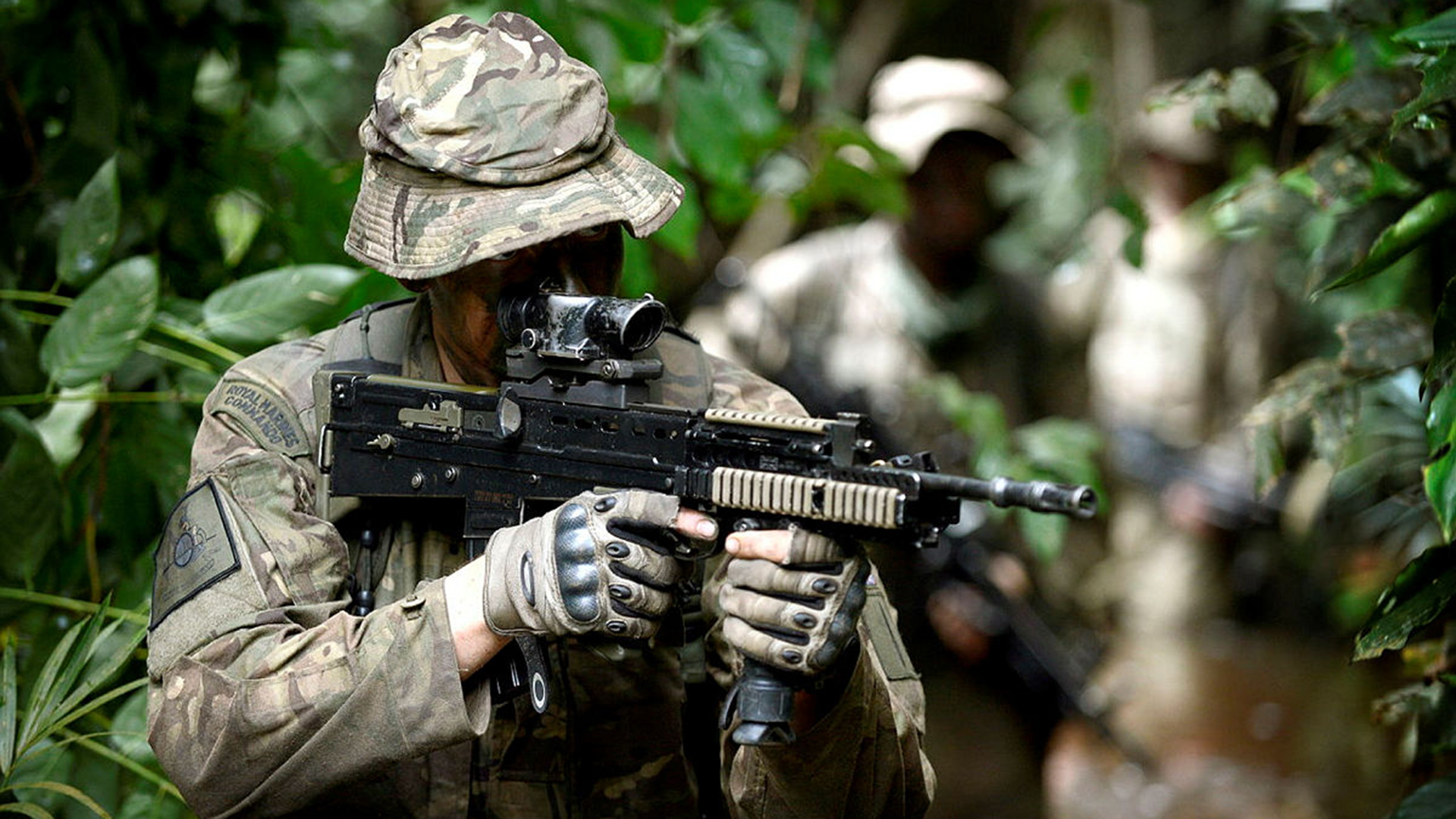

An American Marine officer graduated as the top student from a rigorous 13-week All-Arms Commando Course run by the Royal Marines, according to a news story from Forces, which falls under the British Ministry of Defence.
U.S. Marine Capt. Joseph Z. Brown, an infantry officer, not only earned the right to wear the Royal Marines’ green beret, but his fellow students voted to award him the Commando Medal, the news story says.
“The medal is given to the person who best demonstrates the Commandos’ qualities of courage, determination, unselfishness and a positive attitude against adversity,” the news release says.
Students must complete four weeks of training in preparation for taking the All-Arms Commando Course, which includes a 12-mile weighted march, speed marches, battle drills, and other endurance tests and exercises.
Subscribe to Task & Purpose Today. Get the latest military news and culture in your inbox daily.
The course has a high failure rate. It is held at the Dartmoor Training Area in southern England, which features challenging terrain including bogs and steep-sided valleys, along with cold and wet weather.

“Congratulations to Captain Brown USMC for passing the All-Arms Commando Course,” the Royal Marines posted on X. “Completing this course and the Commando tests, earning the right to wear the famous Commando’s Green beret.”
Brown could not be reached for comment on Thursday. After graduating from the Virginia Military Institute, Brown attended Officer Candidate Course and was commissioned in November 2018, according to his official biography, which was provided to Task & Purpose.
He went on to deploy with Special Purpose Marine Air Ground Task Force, Crisis Response, Central Command in September 2020, and he later graduated from the Navy’s Amphibious Warfare Tactics Instructor Course in December 2022. Brown was promoted to captain in April and his military awards include the Navy and Marine Corps Commendation Medal.
The Royal Marines are famous for their grueling training. They must undergo a 32-week basic training course, the longest infantry training of any NATO member’s military, that culminates with a 30-mile ruck march, or “Yomp,” across Dartmoor while carrying 32 pounds of gear.
About 40% of Royal Marine recruits drop out before they reach the end of their training. In some instances, the attrition rate can be even higher than that.
“Our final graduation group had 13 of the original 54 guys,” Royal Marine Cassidy Little said in a 2017 news story from Forces.
The Royal Marines are a much smaller force than their American counterparts. As of July 2021, the British military had 6,892 full-time Royal Marines and an additional 1,080 reservists. During that same timeframe, the U.S. Marine Corps had more than 181,000 active-duty Marines and another 38,500 reservists.
“Very simply, the Royal Marines is a group of elite amphibious commandos,” a 2021 story from Forces says, “While the USMC is an immense organisation that is essentially an entire military force in and of itself.”
While American and British Marines fought each other in 1776 at Nassau, Bahamas, and then again at the Battle of New Orleans in 1815, relations between the United States and Great Britain have been relatively peaceful since then.
The only flareup in recent times took place in November 2021, when a British newspaper claimed that Royal Marines had forced their American counterparts to surrender during a military exercise at Marine Corps Air Ground Center Twentynine Palms in California.
The Marine Corps stressed afterward that the training exercise did not include an option for anyone to surrender and no winners were determined.
The latest on Task & Purpose
- First female active-duty soldier graduates from sniper school
- 5 question only a veteran would ask Medal of Honor recipient Michael Thornton
- Navy fires recruiting district commanding officer
- Army tanker vet facing cancer gets a final wish: send one last round
- Army employee indicted for stealing $100 million from military youth program